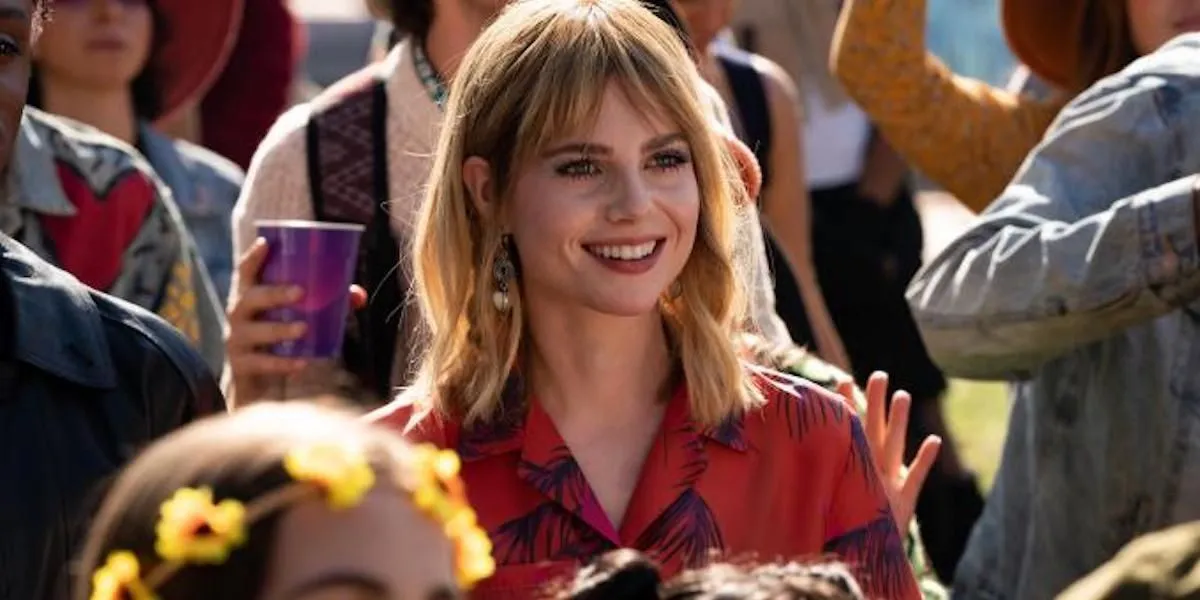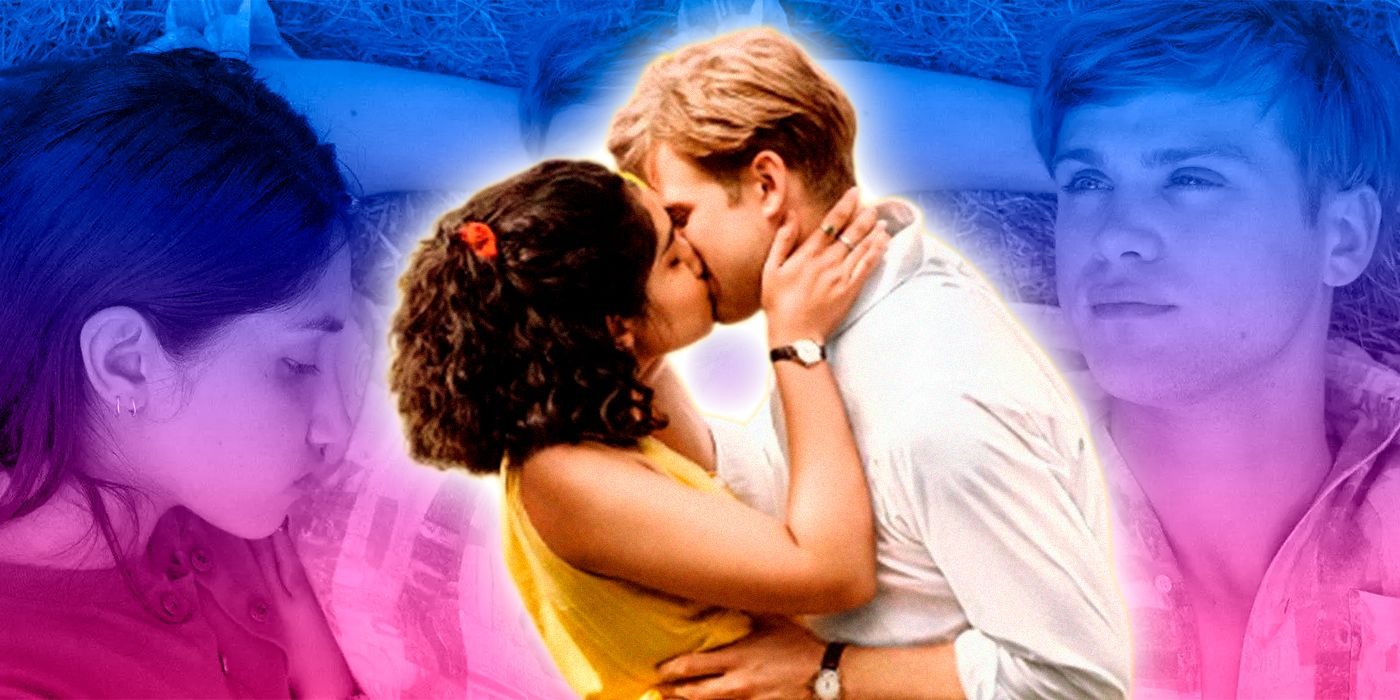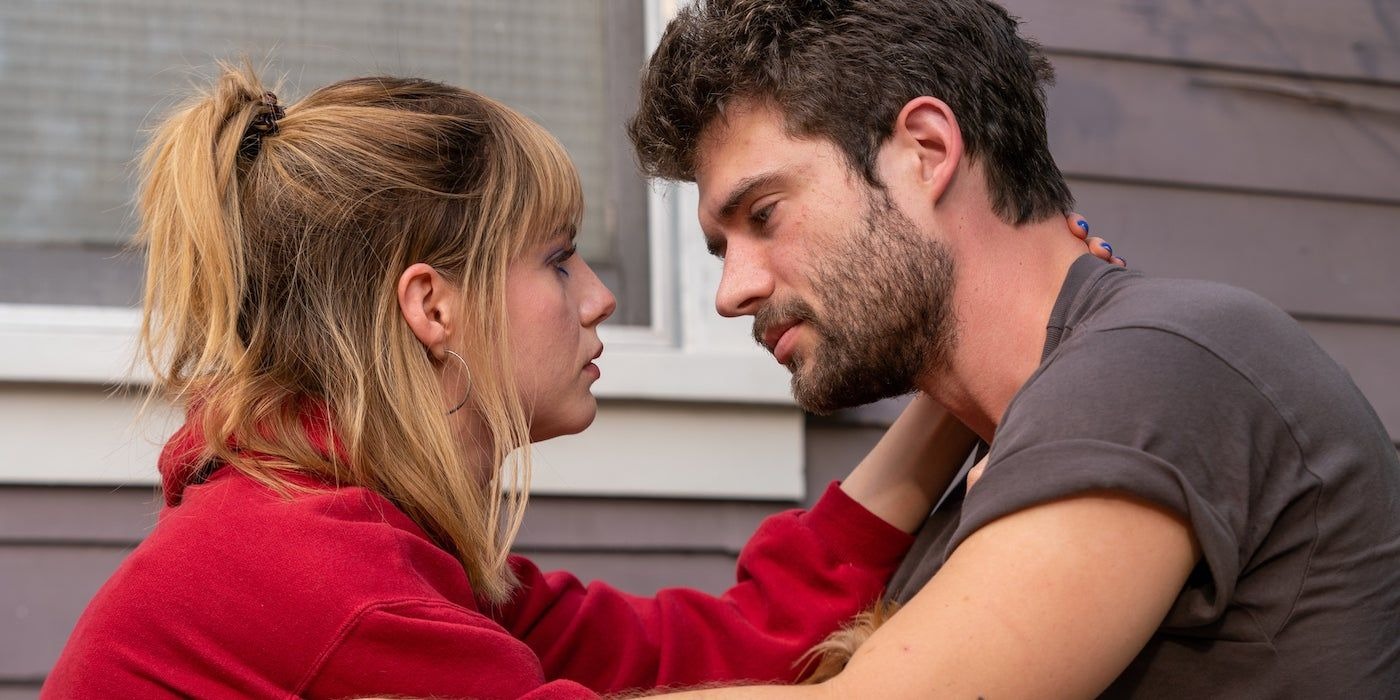The beginning of The Greatest Hits shows a tragic car crash involving Harriet and her boyfriend Max. Max dies in the accident, and Harriet falls into a coma for a period. When she eventually regains consciousness, she discovers that listening to certain songs allows her to slip back in time.
These moments take her back to when she was still with Max, especially when those specific tracks were playing. This discovery makes her retreat from the world completely for the next two years. She spends her days indoors, constantly wearing headphones and withdrawing from her role as a music producer.

Her reason for pulling away is tied to the trauma of losing Max, especially since she had been working on his indie music just before he died.
Harriet becomes fixated on locating a particular song that might allow her to go back far enough to stop Max from buying an old couch at a vintage shop — an act that indirectly led to their fatal journey and the accident that followed.
While staying away from outside life and obsessively searching for the right tune, she attends a grief counseling group where she meets David, played by Justin H. Min from The Umbrella Academy. David lost both his parents naturally, but he begins to feel some joy again when Harriet enters his life.
As they grow closer and begin a relationship, David begins to question whether Harriet’s time travel experiences are real or simply hallucinations brought on by the seizures she suffers due to the accident.
The Greatest Hits’ Antique Shop Plays a Big Role
Leo Woodall and Ambika Mod star in Netflix’s One Day, showing how love stories can be full of heartbreak and timing — a theme that reflects Harriet’s emotional conflict as well.
Harriet constantly battles guilt because she senses that she’s falling in love with David. It reminds her of the deep love she once shared with Max — moments from concerts, parties, and their everyday life at home. Both Harriet and David seem to be bonded by their grief and self-blame.
David’s gentle nature and emotional depth mirror her own. However, David tends to dwell too much on the past, something his sister sees as unhealthy. Still, Harriet finds that their shared outlook connects them deeply.
Eventually, Harriet realises that the same antique store where Max bought the couch had belonged to David’s parents. That very store was also where Harriet and David first caught sight of each other. This explains why they always felt a strange pull towards one another during therapy sessions.
While digging through the shop, Harriet stumbles upon a Mozart record, which turns out to be the missing song she’s been looking for. She uses it to prove her time travel ability to David by leaving him a note that calls him “hummingbird” — a name only his mother had used for him on the day of the accident.
After confronting her past with Max through a heartfelt conversation, Harriet realises she wants to move forward with David. During their final talk in the past, Max expressed that if he were in her shoes, he would try to change the past so she could be happy, even if that meant a future without him.
His words help Harriet understand that she must move on. However, when she tries to fully embrace the present and life with David, she suffers another accident after being triggered by a sound, nearly losing her life again.
David wants to sell the antique shop and move forward, but Harriet feels emotionally trapped by what happened before.
The Greatest Hits’ Harriet Picks David Over Max
Some films successfully bring the emotions and romantic spark of classic novels like Pride & Prejudice to life — The Greatest Hits taps into a similar feeling. Eventually, Harriet sits David down for a heart-to-heart, admitting that she has to return to the past one more time.
She has thought of a solution, though she knows the risk is high. Staying in the present feels impossible for her while knowing that Max is dead. She wants to go back far enough to permanently change events. This mirrors ideas in other science fiction stories where characters alter the past for a different future.
David acknowledges that they might never meet again in this new version of reality, but Harriet chooses to take that risk. If destiny is real, she believes they will somehow reconnect. The story brings Harriet back to the concert where she first met Max. But this time, she decides not to engage with him.
She turns away, emotional but determined. That single decision changes everything. In the present, she’s back in the music industry, now fully immersed in her work with new artists. At one point, she spots David at a café with a girlfriend and the dog they once shared.
They walk past each other without a glance — they have no shared memories anymore. The final scene shows Harriet attending a fresh music festival. By chance, David ends up beside her in the crowd. They exchange a smile, a quiet moment that suggests something new might begin.
Throughout the film, concerts serve as key emotional beats. While music with Max was linked to her job, her connection with David was built on deeper emotional experiences. It was less about the business and more about the heart.
Did The Greatest Hits’ Harriet Make the Right Choice?
Rachel Brosnahan recently teased David Corenswet’s upcoming Superman suit in Superman: Legacy, showing how stories and characters evolve in new roles, much like Harriet’s shift in this story. Max and David both leave strong impressions on Harriet’s story. Still, Max comes across as more self-centred.

It can be seen from the way he initially approached Harriet, the way he made plans for their future without including her thoughts, and how he insisted on buying a chair they couldn’t afford. These moments made Harriet question whether saving Max and staying with him had ever been the right choice.
As her relationship with David grew stronger, it became clear that while she still loved Max, her heart truly belonged to David. He was thoughtful in ways Max never was. For instance, David arranged a silent rooftop disco just for her, knowing she could enjoy it without the risk of hearing a triggering song.
His understanding of grief and personal loss gave Harriet the emotional space she never had before. Her final decision was guided by that same empathy. If she followed science and logic, Max would be the obvious choice. But love is rarely that simple.
Her heart wanted David, even if it meant trusting in something she couldn’t fully explain — a belief that time and fate would bring them back together. David supported this idea, knowing that what they had could outlast anything.
Even in a reality where his parents are gone and they’ve never officially met, he believes music and emotion will somehow bring them back to each other, no matter how different their paths may seem.



